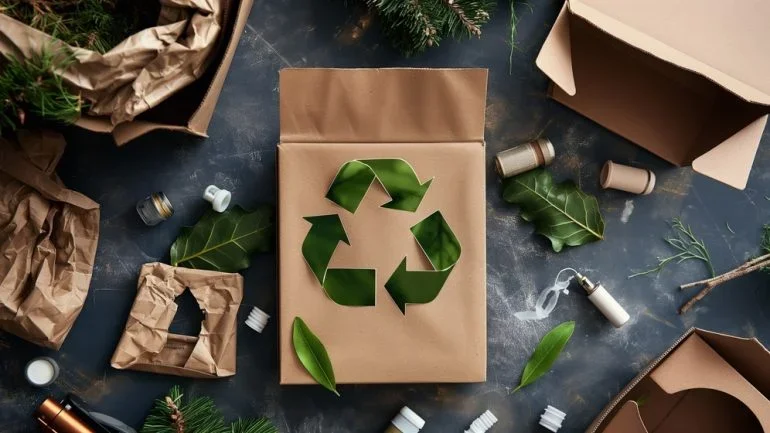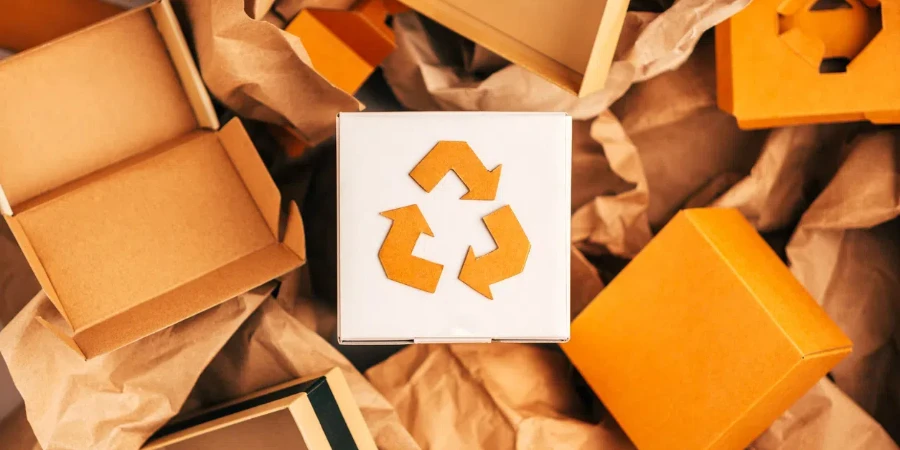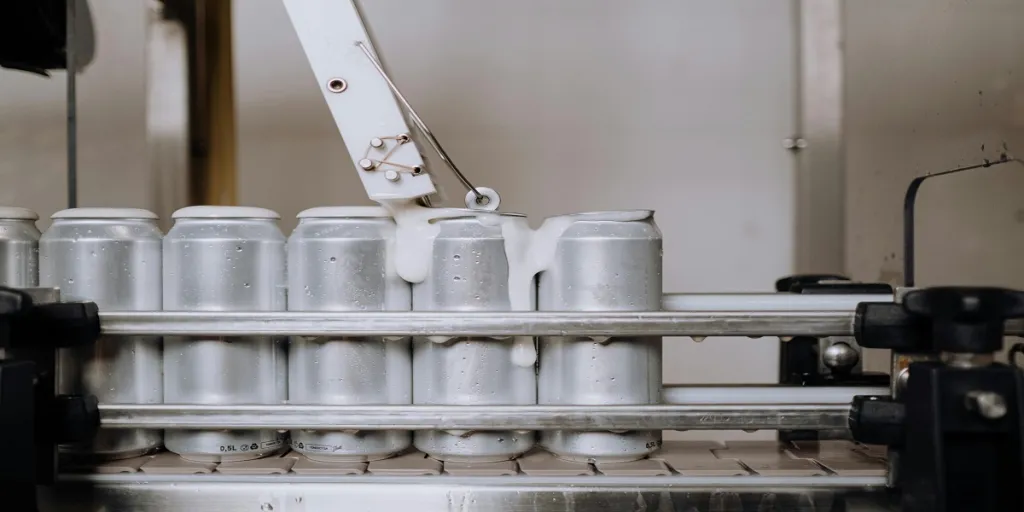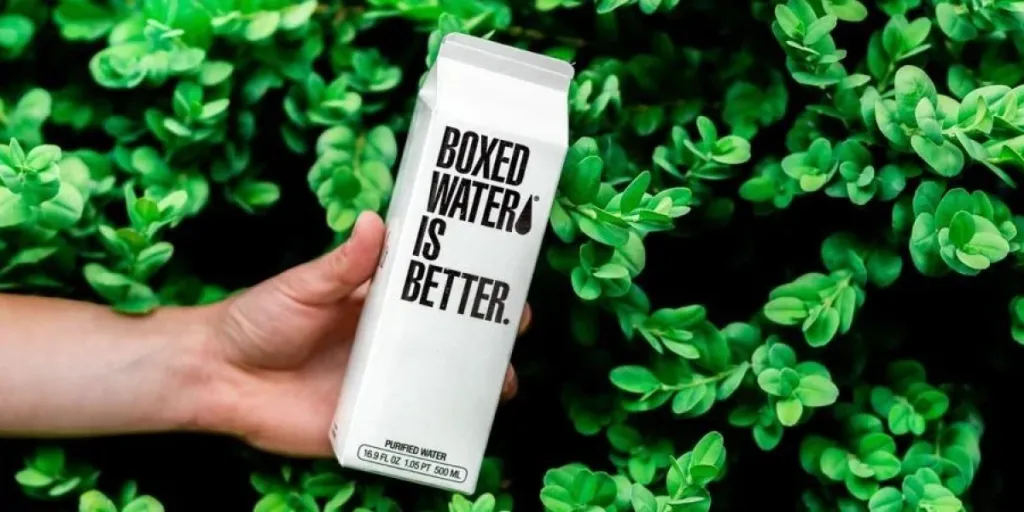Brands and retailers are now exploring closed loop systems, such as compostable packaging, to minimise environmental impact and meet growing regulatory and consumer expectations.

Imagine this: A customer walks into a store and picks up a product packaged in materials that will not simply end up in the trash, further overwhelming our landfills. Rather, after enjoying the product, they are able to simply drop the packaging into a compost bin, allowing it to return to the soil and nourish future crops. This seamless cycle is just one example of the circularity in packaging that can be achieved by closed loop waste systems.
A closed loop system, whether for composting or recycling, is designed to keep materials in continuous use: composting fully breaks down waste, returning it to the earth as soil, while recycling some items can extend the life of materials by reprocessing them. In an era where the pressure to reduce the environmental impact of waste is more apparent than ever, brands and retailers can reap many benefits from using packaging that is part of a closed loop waste system. With accessible systems ensuring that packaging waste is processed properly, companies can more easily embrace sustainable packaging solutions—meeting growing consumer demand to minimize waste and contribute to a circular economy.
Embedding Sustainability throughout the Supply Chain
At its core, a closed loop system ensures that packaging is designed with a commitment to zero waste at the end of its lifecycle, and the entire supply chain helps take responsibility for this. Ideally, manufacturers, brands, retailers, consumers, and waste management companies all cooperate to better handle organic and inorganic packaging waste. In the best situations, retailers think about packaging with zero-waste disposal in mind.
It then moves down the supply chain to manufacturers who support the system by producing this packaging. Going hand-in-hand with extended producer responsibility (EPR), mindful retailers can take further steps to promote the cycle of reuse, such as overseeing waste collection destined for composting or recycling plants, or hosting collection bins in their stores. Waste management companies then work with the participating retailers to provide appropriate collection and disposal services.
Closed Loop Systems Can Advance Alternative, Compostable Plastics
This kind of collaboration can significantly advance the rapidly growing compostable plastic packaging industry, which is projected to increase by $2.89 billion between 2024 and 2028, and is key to reducing traditional plastic waste. In the UK, for example, about 50% of plastic packaging is not being recycled, due to challenges like contamination and cost. Compostable plastic, which also keeps goods clean, fresh, and dry, can help address this issue. By replacing hard-to-recycle plastic with compostable plastic—and instituting closed loop systems that make proper disposal more accessible for consumers — it becomes easier for brands and retailers to embrace compostable packaging. The ultimate goal is to create a seamless system where compostable packaging is not just an option, but the standard, especially when it comes to flexible plastic, which is very difficult to recycle efficiently.
Redefining Retail and Brand Sustainability
Closed loop systems for packaging can help brands and retailers stand out among competitors amid growing consumer demand for sustainability, increased awareness among investors and partners of companies’ environmental impact, and more stringent government regulations regarding waste.
Especially when closed loop systems are built around composting, the planet also benefits from the rich agricultural compost created through this process. Once a compostable product or package has served its purpose, it can break down naturally, enrich the soil for future use, increase crop yields, and even absorb carbon—all of which help to mitigate climate change and increase global food supply.
One standout example of a successful closed loop system implementation is 4WKS, a brand known for its premium coffee packaged in fully compostable capsules. Their coffee pods are designed to break down naturally, providing an effective solution to the problem of single-use plastic and aluminum coffee pods, which often end up in landfills and take hundreds of years to decompose. Instead, 4WKS coffee drinkers can order freshly-roasted coffee delivered straight to their homes in compostable pods. After use, the pods can be stored in a compostable pouch provided by 4WKS and dropped off at one of the 4WKS Compost Collection points conveniently located inside a number of neighborhood coffee shops. These cafes coordinate a monthly pickup date with 4WKS, which then collects the used pods and transports them to a local waste management facility for composting, thus completing the sustainable cycle.
The success of 4WKS’s closed loop system hinges on every participant understanding their role and executing it effectively. This makes it crucial for brands and retailers to integrate marketing and education efforts that focus on the importance of composting and proper disposal methods. This can include in-store campaigns, clear labeling, and strategic signage, guiding consumers on how to participate in the system. Equally important is collaboration with producers and waste management companies to ensure that these efforts lead to the proper processing and return of nutrients to the soil.
Boosting Business with Compostable Packaging
As we look to the future, the financial importance of adopting closed loop composting systems cannot be overstated. These systems directly respond to the growing consumer expectation for sustainability, providing brands and retailers with a practical way to drastically cut plastic use. Furthermore, by solving the challenges associated with composting and effectively managing waste, businesses can cut costs associated with waste disposal and enhance their corporate reputation, driving sales and fostering customer loyalty. With a proactive approach towards compostable packaging, brands and retailers can position their companies as leaders in the sustainability movement and contribute to a broader cultural shift that makes compostable packaging the norm rather than the exception.
Source from Packaging Gateway
Disclaimer: The information set forth above is provided by packaging-gateway.com independently of Chovm.com. Chovm.com makes no representation and warranties as to the quality and reliability of the seller and products. Chovm.com expressly disclaims any liability for breaches pertaining to the copyright of content.





 বাংলা
বাংলা Nederlands
Nederlands English
English Français
Français Deutsch
Deutsch हिन्दी
हिन्दी Bahasa Indonesia
Bahasa Indonesia Italiano
Italiano 日本語
日本語 한국어
한국어 Bahasa Melayu
Bahasa Melayu മലയാളം
മലയാളം پښتو
پښتو فارسی
فارسی Polski
Polski Português
Português Русский
Русский Español
Español Kiswahili
Kiswahili ไทย
ไทย Türkçe
Türkçe اردو
اردو Tiếng Việt
Tiếng Việt isiXhosa
isiXhosa Zulu
Zulu